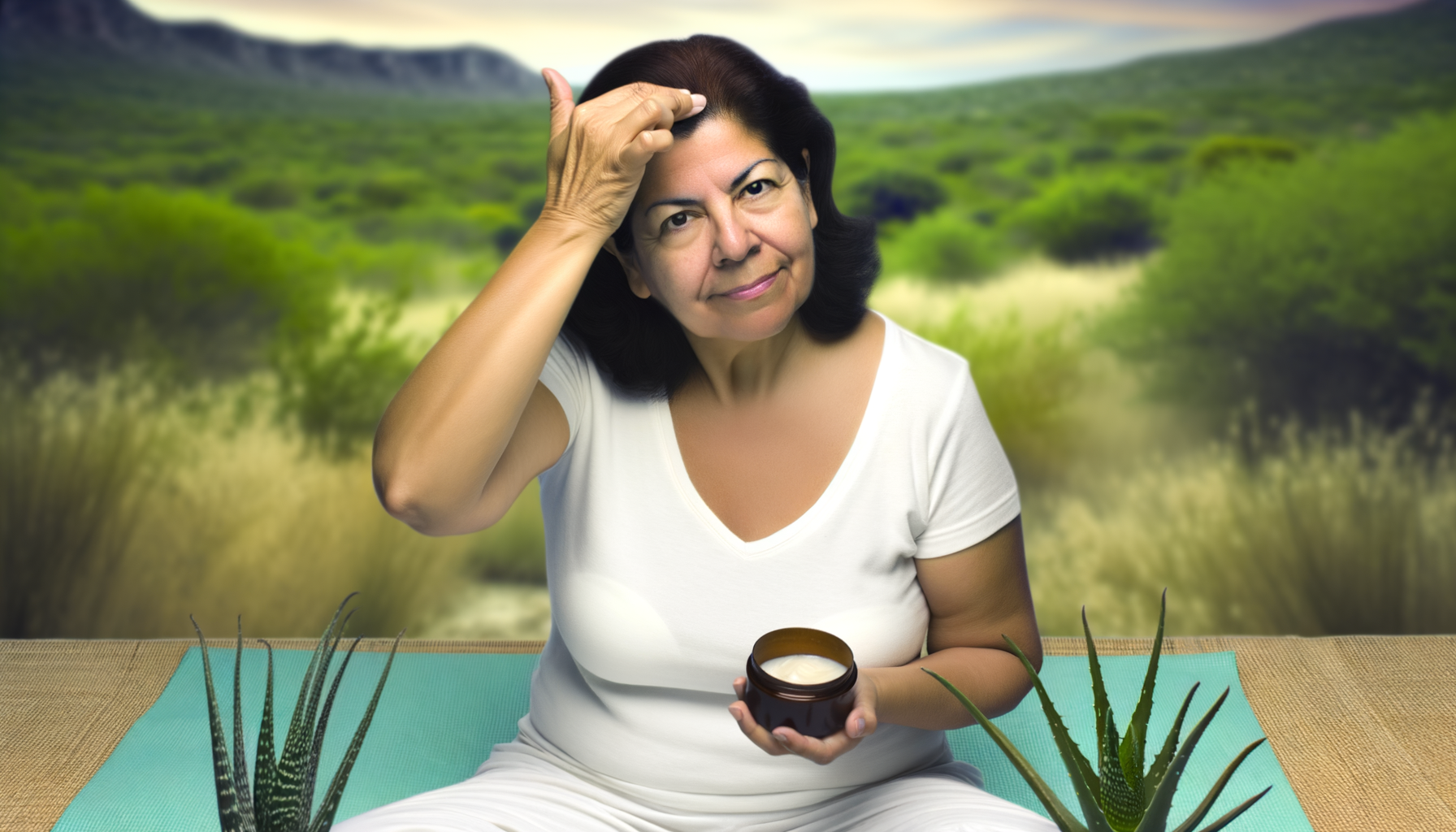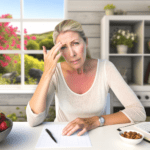Defining Burning Scalp Syndrome
Burning Scalp Syndrome, also known as scalp dysesthesia, is a condition characterized by chronic and often distressing sensations on the scalp without clear physical findings. Individuals with this syndrome may experience a range of symptoms, including burning, stinging, itching, or tingling sensations that can be persistent and significantly impact their quality of life. The condition is not limited to any specific demographic and can affect males and females of all ages.
Common Symptoms and Sensations
The primary symptom of Burning Scalp Syndrome is a painful, burning sensation on the scalp. However, the condition can also manifest as a tingling or prickling feeling, akin to the sensation of insects crawling on the skin. Some individuals may experience intense itching or a feeling of tightness, which can fluctuate in severity and may be exacerbated by stress or physical triggers. These symptoms are often chronic and can persist for months or even years if left unaddressed.
Overview of Causes and Triggers
The exact cause of Burning Scalp Syndrome is not well understood, but it is believed to be multifactorial. Potential triggers include:
- Hair care products: Irritating shampoos, dyes, bleaches, and heated hair care devices.
- Physical or nerve trauma: Conditions such as neuropathy.
- Hormonal fluctuations: Changes related to menstruation, pregnancy, or menopause.
- Skin conditions: Psoriasis, seborrheic dermatitis, and folliculitis.
- Infections: Scalp infections like tinea versicolor or tinea capitis.
- Psychological factors: High levels of stress and anxiety.
These factors can act on the nerve endings and blood vessels in the scalp, leading to the uncomfortable sensations associated with the syndrome.
The Psychological Impact of Scalp Discomfort
The persistent discomfort of Burning Scalp Syndrome can have a significant psychological impact on sufferers. The chronic nature of the pain and itching can lead to stress, anxiety, and even depression. The condition can also affect self-esteem and body image, as individuals may become self-conscious about their appearance or the need to frequently touch or scratch their scalp. Moreover, the syndrome can disrupt sleep and daily activities, further exacerbating psychological distress. It is crucial for individuals experiencing these symptoms to seek medical advice, as effective treatments are available that can alleviate both the physical and psychological burdens of the condition.
Understanding the Connection Between Menopause and Burning Scalp
Hormonal Fluctuations and Skin Sensitivity
Menopause is a significant period of transition in a woman’s life, characterized by the end of menstrual cycles and marked hormonal changes. These fluctuations, particularly the decline in estrogen and progesterone, can lead to increased skin sensitivity, including that of the scalp. As the body adapts to lower levels of these hormones, women may experience a range of skin-related symptoms, such as dryness, itching, and a burning sensation on the scalp. This heightened sensitivity can be attributed to the skin’s diminished ability to retain moisture and a weakened protective barrier, making the scalp more susceptible to irritation and discomfort.
The Role of Estrogen in Scalp Health
Estrogen plays a crucial role in maintaining the health and balance of the scalp. It supports the production of collagen and elastin, proteins that give the skin its strength and elasticity. Estrogen also helps regulate the production of natural oils, which keep the scalp moisturized and protect against environmental stressors. As estrogen levels drop during menopause, the scalp may become drier and more prone to irritation, leading to symptoms like burning, itching, and flaking. This hormonal decline can also impact hair growth and texture, contributing to the overall discomfort experienced during menopause.
Stress and Anxiety as Contributing Factors
Menopause can be a stressful time due to the physical and emotional changes it brings. Stress and anxiety are known to exacerbate skin conditions, including those affecting the scalp. The release of stress hormones like cortisol can lead to inflammation and aggravate symptoms of burning scalp syndrome. Additionally, stress can disrupt the skin’s barrier function, further increasing sensitivity and the potential for discomfort. Managing stress through relaxation techniques and lifestyle adjustments is therefore essential for women experiencing menopausal symptoms, including those related to scalp health.
Comparing Pre-Menopause, Menopause, and Post-Menopause Experiences
The experience of burning scalp syndrome can vary throughout the different stages of menopause. During pre-menopause, hormonal levels begin to fluctuate, but estrogen and progesterone are still being produced at relatively higher levels, which may offer some protection against scalp sensitivity. As a woman enters menopause, the significant drop in these hormones can lead to more pronounced symptoms, including burning scalp. Post-menopause, once the body has adjusted to the new hormonal environment, many women report a decrease in these symptoms. However, the overall decline in estrogen continues to affect skin and scalp health, making ongoing care and attention to scalp health important even after the transition is complete.
In conclusion, the connection between menopause and burning scalp is primarily driven by hormonal changes that affect skin sensitivity and health. Understanding this connection is crucial for developing effective strategies to manage and alleviate symptoms, ensuring that women can navigate this natural life stage with greater comfort and well-being.
Identifying and Addressing Potential Causes
Hair Care Products and Practices
One of the first areas to consider when addressing a burning scalp during menopause is the hair care products and practices being used. Shampoos, conditioners, dyes, and styling products often contain chemicals that can irritate the scalp, especially when it becomes more sensitive during hormonal changes. It’s important to review the ingredients in these products for potential irritants such as sulfates, parabens, and fragrances. Switching to gentler, hypoallergenic products can make a significant difference. Additionally, avoiding excessive heat from hair dryers, straighteners, and curling irons can help reduce scalp irritation.
Underlying Skin Conditions
Various skin conditions can contribute to a burning scalp sensation. Conditions such as psoriasis, seborrheic dermatitis, and folliculitis can be exacerbated by menopause due to hormonal fluctuations affecting skin health. It’s crucial to consult a dermatologist to diagnose any underlying conditions. Treatment for these conditions may include medicated shampoos, topical corticosteroids, or other prescribed medications.
Environmental and Lifestyle Factors
Environmental factors such as sun exposure and extreme weather conditions can lead to scalp irritation and burning sensations. Protecting the scalp with hats and using sunscreen designed for the scalp can provide relief. Lifestyle factors, including diet and stress, also play a role. A diet rich in anti-inflammatory foods and vitamins can support skin health, while stress-reduction techniques can alleviate symptoms exacerbated by anxiety.
The Importance of Tracking Symptoms
Keeping a detailed symptom diary can be an invaluable tool in identifying triggers for burning scalp syndrome. Recording when the burning sensation occurs, along with any changes in hair care products, stress levels, diet, or environmental exposures, can help pinpoint potential causes. This information is also useful for healthcare providers to tailor treatment plans effectively.
By addressing these potential causes, individuals can take proactive steps to reduce the discomfort associated with a burning scalp during menopause. It’s important to remember that each person’s experience is unique, and what works for one may not work for another. Therefore, a personalized approach is essential for long-term relief.

Natural Remedies and Lifestyle Adjustments
Stress Reduction Techniques
Menopause can be a stressful time, and stress can exacerbate symptoms like a burning scalp. Incorporating stress reduction techniques into your daily routine can help alleviate this discomfort. Techniques such as meditation, yoga, deep breathing exercises, and progressive muscle relaxation can be particularly effective. Additionally, engaging in hobbies or activities that bring joy can serve as a natural stress reliever and improve overall well-being.
Homemade Scalp Soothers
Creating homemade scalp soothers can provide relief from the burning sensation. A popular remedy involves a mixture of coconut oil and aloe vera, known for their soothing and anti-inflammatory properties. Gently massaging this mixture into the scalp can moisturize the skin and reduce irritation. Another option is a scalp mask made from banana and honey, which can nourish the scalp with natural enzymes and antioxidants.
Dietary Considerations and Supplements
A balanced diet rich in vitamins, minerals, and essential fatty acids is crucial for maintaining healthy skin, including the scalp. Foods high in omega-3 fatty acids, such as salmon and flaxseeds, can support skin health. Additionally, incorporating phytoestrogens found in soy products, nuts, and seeds may help balance hormone levels. Supplements like vitamin D, biotin, and zinc can also support scalp health, but it’s important to consult with a healthcare provider before starting any new supplement regimen.
The Role of Regular Exercise
Regular exercise is not only beneficial for overall health but can also help manage menopausal symptoms, including a burning scalp. Exercise improves blood circulation, which can promote healthier skin and reduce inflammation. Activities such as walking, swimming, or cycling can be gentle yet effective ways to incorporate regular physical activity into your routine. Aim for at least 30 minutes of moderate exercise most days of the week for the best results.
By integrating these natural remedies and lifestyle adjustments, women going through menopause can find relief from burning scalp symptoms and improve their overall quality of life during this transitional period.

Popular Read
Medical Interventions and When to Seek Help
Recognizing Persistent or Worsening Symptoms
It’s essential to monitor the health of your scalp closely, especially during menopause. If you notice that your scalp discomfort persists or worsens, it may be time to seek medical advice. Signs to watch for include increased redness, scaling, persistent itching, or sores that do not heal. These symptoms could indicate an underlying condition that requires professional treatment. Additionally, if home remedies and lifestyle changes fail to provide relief, this could also signal the need for a more in-depth evaluation.
Diagnostic Tests and Examinations
When you visit a healthcare provider, they may perform a variety of diagnostic tests to determine the cause of your burning scalp. These can include blood tests to check for hormonal imbalances or deficiencies, skin biopsies to examine the health of scalp tissue, and scalp examinations to look for signs of skin conditions such as psoriasis or seborrheic dermatitis. Identifying the root cause is crucial for effective treatment.
Conventional Treatments and Medications
Depending on the diagnosis, your healthcare provider may recommend conventional treatments such as topical corticosteroids to reduce inflammation, antifungal medications for scalp infections, or medicated shampoos designed to address specific scalp conditions. In some cases, hormone replacement therapy (HRT) may be discussed if hormonal imbalances are contributing to scalp issues. It’s important to follow your healthcare provider’s recommendations and to understand that treatment may require some trial and error to find what works best for you.
The Importance of Professional Diagnosis
Self-diagnosis and treatment can sometimes lead to more harm than good. A professional diagnosis is paramount to ensure that you are not overlooking a serious condition or mistreating a symptom. Dermatologists and trichologists specialize in hair and scalp health and can provide targeted treatment plans. They can also offer guidance on how to manage symptoms effectively during menopause and beyond. Remember, seeking professional help is a proactive step towards maintaining your overall well-being.
In conclusion, while menopause can bring about changes in scalp health, it is important to be vigilant about symptoms and to seek medical intervention when necessary. By doing so, you can alleviate discomfort and prevent potential complications, ensuring that your scalp remains healthy throughout this transitional phase of life.

Do you have the most commonly used but toxic, disease bringing chemicals in your skin care? Many chemicals in skincare are hormone disruptors and make menopause symptoms worse.
Find out more…
Preventative Measures and Long-Term Management
Adopting a Scalp-Friendly Hair Care Routine
One of the key strategies in preventing and managing burning scalp syndrome, particularly during menopause, is to establish a scalp-friendly hair care routine. This involves selecting gentle, sulfate and silicone-free shampoos and conditioners that minimize irritation and dryness. Additionally, incorporating hydrating treatments such as deep-conditioning masks can help maintain hair strength and elasticity. It’s also advisable to avoid harsh styling practices and opt for protective hairstyles that reduce tension and breakage. Regular use of a soft, gentle hairbrush designed to minimize hair breakage can also contribute to a healthier scalp environment.
Monitoring Hormonal Health
Menopause brings about significant hormonal changes that can affect scalp health. Monitoring hormonal health is crucial for managing symptoms effectively. Women may consider bioidentical hormone replacement therapy (HRT) after consulting with a healthcare provider. This therapy uses hormones that are chemically identical to those the body naturally produces, potentially offering a more natural way to restore hormonal balance. It’s important to have open discussions with healthcare providers about all symptoms, not just hair loss, to understand the full scope of the menopause transition.
Building Resilience to Stress
Stress is a known trigger for burning scalp syndrome and can exacerbate menopausal symptoms. Building resilience to stress through stress reduction techniques such as meditation, yoga, or other relaxing activities can improve overall health, including scalp health. Engaging in hobbies, connecting with loved ones, and practicing mindfulness exercises can also promote wellness and help manage stress levels.
Regular Check-Ups and Skin Assessments
Regular check-ups with a dermatologist or healthcare provider specializing in women’s health are essential for managing menopause and associated scalp issues. These professionals can provide a thorough evaluation, which may include tests to check related health factors like thyroid function and anemia. They can also examine the scalp to determine the type of hair loss and recommend appropriate treatments. Regular skin assessments help in early detection and management of any underlying conditions that may contribute to scalp discomfort.
In conclusion, adopting a proactive approach to scalp health during menopause is vital. By implementing a scalp-friendly hair care routine, monitoring hormonal health, building resilience to stress, and ensuring regular medical check-ups, women can navigate through menopause with confidence and maintain a healthy scalp.

Feeling You Have a Right to Safe Beauty & Fem Care?
If so, it may be time for a change. It starts with knowledge. We have a few suggestions in our new guides.
Conclusion: Navigating Menopause and Scalp Health
Throughout this article, we have explored the multifaceted relationship between menopause and burning scalp syndrome. We’ve learned that menopause, a natural biological process characterized by hormonal fluctuations, can significantly impact scalp health. The decline in estrogen levels is particularly influential, leading to a range of symptoms from dryness and irritation to burning sensations. Androgens, which become relatively more dominant during menopause, can also contribute to scalp discomfort by affecting sebum production and skin sensitivity.
Moreover, we’ve discussed how these hormonal changes can exacerbate existing scalp conditions or even trigger new ones. The importance of identifying potential causes, such as hair care products, underlying skin conditions, and lifestyle factors, has been emphasized. We’ve also delved into various natural remedies, lifestyle adjustments, and medical interventions that can help manage and alleviate symptoms.
Encouraging a Proactive Approach
It is crucial for women experiencing menopause to adopt a proactive approach to scalp health. This includes being vigilant about the hair care products used, avoiding irritants, and seeking medical advice when symptoms persist or worsen. Tracking symptoms and potential triggers can provide valuable insights and aid in the management of scalp discomfort.
Implementing stress reduction techniques, dietary considerations, and regular exercise can also play a significant role in mitigating symptoms. Additionally, homemade scalp soothers and supplements may offer relief and support scalp health during this transitional period.
Final Thoughts on Support and Resources
As we conclude, it’s important to acknowledge that while menopause can be a challenging time for scalp health, there are numerous support and resources available. Women should not hesitate to consult healthcare professionals, including dermatologists and endocrinologists, who can provide tailored advice and treatment options.
Online communities, podcasts, and educational materials can also offer support and share experiences, helping women feel less isolated in their journey. Finally, ongoing research and advancements in dermatology continue to shed light on menopause-related scalp issues, promising better management strategies in the future.
In summary, by understanding the connection between menopause and scalp health, embracing natural remedies, seeking medical intervention when necessary, and taking preventative measures, women can navigate this phase with confidence and comfort. The key is to remain informed, proactive, and supported throughout the menopausal transition.









